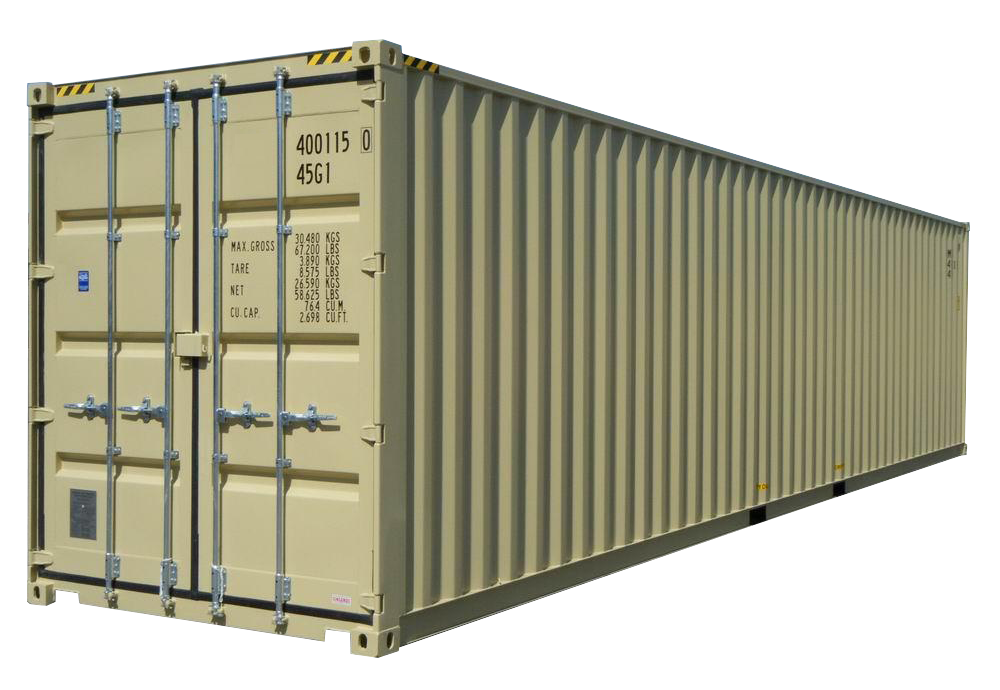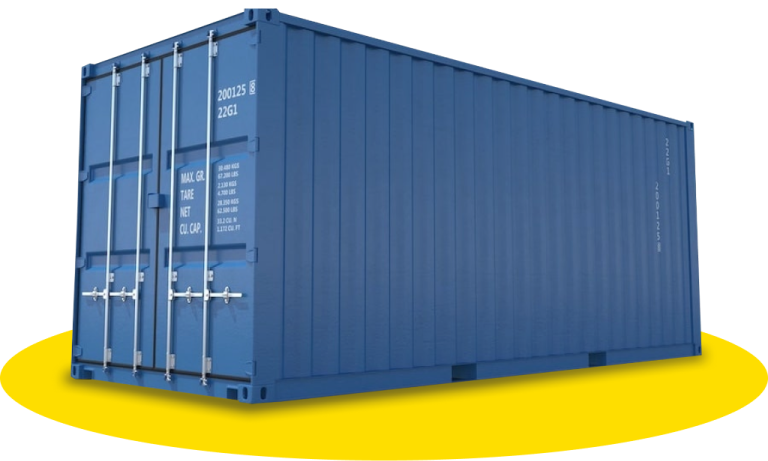How to Buy New Shipping Container 40 x 8 x 9.6 and Convert It into an Eco-Friendly Office
How to Buy New Shipping Container 40 x 8 x 9.6 and Convert It into an Eco-Friendly Office
Blog Article
The Ultimate Guide to Picking the Right Delivery Container for Your Needs
When it comes to picking the right delivery container, comprehending your particular demands is crucial. You'll wish to think about elements like dimension, type, and material to guarantee you make the very best choice. From standard sizes to specialized options, there's a lot to discover. And also, budgeting for both the container and any type of alterations can make a big distinction. Let's break down the crucial facets to assist you locate the best suitable for your needs.
Understanding Shipping Container Sizes
When you're selecting a delivery container, understanding the various dimensions available is crucial for making the right decision. Shipping containers commonly can be found in typical sizes of 20 and 40 feet, yet you'll also find various other dimensions. Knowing the dimension you need depends upon what you plan to store or transport.If you're relocating smaller products, a 20-foot container could be ideal, while bigger deliveries commonly need a 40-foot container. The height can additionally vary; high dice containers provide additional vertical area, which can be advantageous for taller goods.Before choosing, gauge your cargo, and consider exactly how much room you'll need for packing and discharging. Constantly consider possible future needs-- choosing a slightly larger container may conserve you trouble down the line. Eventually, selecting the best dimension will boost effectiveness and guarantee your items are safe and secure during transit
Types of Delivery Containers Available
There are a number of kinds of delivery containers available, each created for details objectives and freight requirements. The common completely dry container is versatile, perfect for general freight. If you're delivering perishable items, think about a refrigerated container, which maintains a controlled temperature level. For extra-large products, high cube containers use added height, suiting taller loads.If you require to deliver heavy equipment or devices, level shelf containers offer a tough base without walls. On the other hand, open-top containers enable easy loading of tall freight, with a detachable tarp covering for security. If you're seeking adaptability, think about a retractable container that can be quickly saved when not in use.Lastly, specialized containers like storage tank containers are made use of for liquids, while vented containers are designed for bulk freight that needs ventilation. Recognizing your freight type will certainly assist you pick the best container to fulfill your delivery requires effectively.
Product Factors To Consider for Toughness
When picking a shipping container, the material plays a crucial role in its sturdiness. You'll desire to evaluate the advantages of steel versus light weight aluminum, especially concerning rust resistance. Comprehending these aspects can aid you make a much more educated selection for your shipping requires.
Steel vs. Light weight aluminum Containers
Exactly how do you choose between steel and light weight aluminum containers for your delivery requires? Start by thinking about toughness. Steel containers are durable and offer superb strength, making them perfect for heavy loads and rough problems. They withstand damages from impacts and are frequently less costly, which can be a significant factor for budget-conscious buyers.On the other hand, aluminum containers are light-weight, which can save you on delivery prices. They're easier to steer and are a great selection if you need to carry products frequently. Nonetheless, light weight aluminum is generally extra costly and less durable than steel. Consider your particular demands meticulously, consisting of weight, cost, and the kind of cargo you'll be delivery, to make the ideal selection for your circumstance.
Deterioration Resistance Variables
Picking the best material doesn't just entail weight and price; rust resistance plays a significant duty in longevity. When choosing a shipping container, consider the setting it'll encounter. Steel containers, while solid, can rust if not effectively treated. Look for alternatives with safety finishings or galvanization to improve their life expectancy. Aluminum, on the other hand, supplies all-natural rust resistance, making it ideal for seaside areas or damp problems. However, it can be extra costly. Furthermore, analyze the container's usage-- if it'll be subjected to chemicals or harsh weather, prioritize materials that can endure these conditions. Purchasing a corrosion-resistant container now can conserve you from expensive repair services or replacements down the line. Choose intelligently for long-lasting advantages.
Modifications and Personalization Options
Delivering containers aren't just have a peek at these guys for delivering goods; they can be transformed to satisfy your particular needs with different alterations and modification alternatives. You can transform a basic container right into a cozy workplace room, a temporary retail shop, or perhaps a personal gym. The opportunities are virtually endless.Think regarding adding home windows, insulation, or ventilation to boost comfort. You may likewise consider electrical circuitry, plumbing, or perhaps custom-made shelving to boost performance. If protection's a problem, reinforced locks can offer peace of mind.For visual allure, you can paint the container or include a distinct style to make it stand apart. Do not fail to remember concerning floor covering alternatives-- whether you desire long lasting plywood or something extra innovative, it can boost the space.Ultimately, customizing your delivery container to suit your requirements can boost use and develop an one-of-a-kind environment that mirrors your design.
Examining Your Transport Requirements
When it involves using your customized delivery container, recognizing your transportation needs is vital. Beginning by establishing what you'll be delivery-- whether it's heavy devices, retail goods, or individual products. Each kind of cargo has different needs pertaining to dimension, weight, and accessibility.Next, consider the range and setting of transport. Are you shipping in your area, across the country, or globally? This impacts the container's layout and performance. If you're using vehicles, ensure your container fits standard dimensions for very easy loading and unloading.Additionally, think of transit problems. Will your items need unique defense from weather or temperature changes? If so, you might need insulation or air flow attributes in your container.Lastly, assess exactly how commonly you'll be carrying goods. Regular shipments might require an extra durable and flexible container to meet ongoing needs. By dealing with these factors, you'll be well-prepared to choose the appropriate delivery container for your needs.
Budgeting for Your Shipping Container
Establishing an allocate your delivery container is vital for making certain a smooth getting process. Initially, determine just how much you can afford to spend. Bear in mind that rates can differ significantly based on size, problem, and kind. New containers generally set you back extra, but made use of ones can offer considerable savings.Next, take into consideration any extra expenses you could incur, such as transportation charges, shipment costs, and alterations. If you intend to customize the container, variable in those costs too. Study various suppliers to compare prices and find the very best bargain that satisfies your needs.Don' t fail to remember to consist of any her response licenses or regulations that may relate to your acquisition and use the container. By plainly outlining your budget plan, you'll be much better prepared to make informed decisions, ensuring you get the best container without breaking the financial institution.
Upkeep and Look After Long life
To guarantee your shipping container lasts for years, normal maintenance is essential. Start by examining the exterior for rust, dents, and damages. If you detect any kind of concerns, resolve them instantly to stop additional damage. Tidy the container regularly, both throughout, to eliminate dust, debris, and wetness that can bring about corrosion.Ensure the doors secure appropriately and lube the hinges to avoid corrosion and sticking. If you're utilizing the container for storage, take into consideration adding ventilation to lower moisture and mold and mildew growth. For extra protection, use a rust-inhibiting paint or sealer annually.If your container's located in a harsh setting, like seaside areas, you might require to boost upkeep regularity. Maintain an eye on the flooring, too; any kind of indications of wear ought to be fixed as soon as possible. With these basic actions, you'll expand the life of your shipping container substantially.
Frequently Asked Questions
Exactly how Do I Discover a Trusted Delivery Container Vendor?
To locate a dependable shipping container provider, begin by investigating on the internet evaluations, requesting suggestions from close friends or market contacts, and comparing rates. Always inspect their credentials and warranty they supply top quality containers that meet your demands.

Can I Lease a Delivery Container As Opposed To Purchasing?
Yes, you can definitely lease a delivery container rather than acquiring one. Several providers supply rental options, which can save you cash and offer flexibility if you just require it for a short period.
What Allows Are Required for Container Placement?

Are Delivery Containers Weatherproof and Suitable for Outdoor Storage?
Yes, delivering containers are normally weatherproof, created to hold up against severe conditions. Their durable building and construction maintains your items secure and dry, making them ideal for exterior storage. Simply guarantee correct ventilation to protect against dampness buildup inside.
Just how Do I Transfer a Delivery Container When Bought?

Report this page